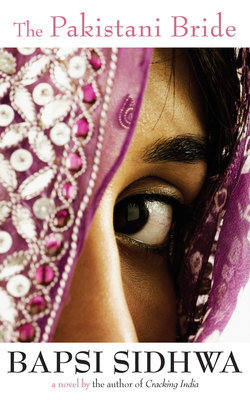Читать книгу The Pakistani Bride - Bapsi Sidhwa - Страница 8
ОглавлениеChapter 2
Three years passed, and in the chaotic summer of 1947 there was serious political unrest in the North Indian plains. Savage rioting erupted and many minority groups felt insecure. One by one the hill-country tribesmen fled Jullundur. For a time Qasim, loath to return to his life in the mountains where he would be under pressure to remarry, stayed on. He did not want to expose himself again to the bonds of love.
Hysteria mounted when the fertile, hot lands of the Punjab were suddenly ripped into two territories—Hindu and Muslim, India and Pakistan. Until the last moment no one was sure how the land would be divided. Lahore, which everyone expected to go to India because so many wealthy Hindus lived in it, went instead to Pakistan. Jullundur, a Sikh stronghold, was allocated to India. Now that it was decided they would leave, the British were in a hurry to wind up. Furniture, artifacts, and merchandise had to be shipped, antiques, curios, and jewelry acquired and transported. Preoccupied with misgiving and the arrangements attendant on relocating themselves in their native land, by the agony of separation from regiments, Imperial trappings and servants, the rulers of the Empire were entirely too busy to bother overmuch with how India was divided. It was only one of the thousand and one chores they faced.
The earth is not easy to carve up. India required a deft and sensitive surgeon, but the British, steeped in domestic preoccupation, hastily and carelessly butchered it. They were not deliberately mischievous—only cruelly negligent! A million Indians died. The earth sealed its clumsy new boundaries in blood as town by town, farm by farm, the border was defined. Trains carrying refugees sped through the darkness of night—Hindus going one way and Muslims the other. They left at odd hours to try to dodge mobs bent on their destruction. Yet trains were ambushed and looted and their fleeing occupants slaughtered.
Near Lahore, men—mostly Sikhs—squat on either side of the rail-tracks, waiting. Their white singlets reflect the moon palely. These Sikhs are lean and towering, with muscles like flat mango seeds and heads topped by scraggy buns of hair, loose tendrils mingling with their coarse beards. They are silent, listening, glancing at the luminous dials of wristwatches.
They have raised a barricade of logs across the tracks, and the steel rails swerve slightly where the lines disappear in blackness. On either side, ploughed stretches of earth spread black wings to the horizon.
At first the men, bunched in loose groups, welcome the diversion when a voice rises:
“I saw them myself—huge cauldrons of boiling oil and babies tossed into them!”
Then losing interest in what they have heard so often, their faces turn away. By now these tales arouse only an embarrassed resentment. They are meant to stir their nobler passions, but the thought of loot undermines that resolve.
An old Sikh stands up. He wears a loose white muslin shirt, which makes him look bigger in the moonlight. They know him to be the sole survivor of a large family in the Montgomery district. They whisper, “It is Moola Singh, cousin of Bishan Singh.”
Seething with hatred, his hurt still raw, Moola Singh resents their apathy. From the depths of his anguish, his voice betraying tears, he shrieks: “Vengeance, my brothers, vengeance!” He swallows hard. “I thought we would stay by our land, by our stock, by our Mussalman neighbors. No one can touch us, I thought. The riots will pass us by. But a mob attacked our village—Oh, the screams of the women, I can hear them still . . . I had a twenty-year-old brother, tall and strong as a mountain, a match for any five of them. This is what they did: they tied one of his legs to one jeep, the other to another jeep—and then they drove the jeeps apart . . .”
Moola Singh stands quite still. The men look away despite the dark. Their indignation flares into rage.
“God give our arms strength,” one of them shouts, and in a sudden movement, knives glimmer. Their cry, “Bole so Nihal, Sat siri Akal,” swells into the ferocious chant: “Vengeance! Vengeance! Vengeance!” The old Sikh sinks to his knees.
